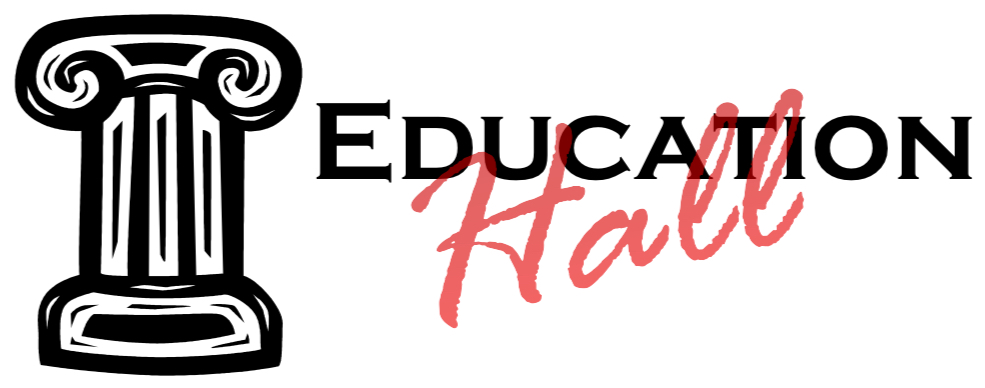
As educators, we can all appreciate the “light bulb moments” our students sometimes have. You know the ones: You’ve been working with a student on a particular concept or idea for a while, and all you’ve gotten back are sputterings of murky confusion. You’ve reached into your bag of tricks, tried all sorts of different approaches, even recruited other students to take a shot at it; yet, the learning remains tantalizingly out of reach.
And then, seemingly out of the blue, something clicks in your student’s brain. The light bulb flickers, and the student exclaims, “Oh, now I get it!” That student just had a breakthrough moment. Many of us, as educators, live and die with our students’ breakthrough moments.
The breakthrough moments aren’t just for students, though. Yes, we can have them as professionals, too – in fact, they happen quite often, and when we’re attuned to them, we can amplify their impact as we strive to become breakthrough teachers.
I had one of those breakthrough moments as a fourth-grade teacher. We’d been doing a lot of work in our PD sessions and faculty meetings on vocabulary instruction and my principal was really stressing the importance of pre-teaching vocabulary. I was really struggling with why I needed to do it and how to do it well, and it wasn’t until my instructional coach was sitting in my room during a reading lesson that it clicked for me. We stumbled on a word in a passage, and when I asked my class who knew what it meant, only one hand out of thirty went up. We had to stop and learn it together – interrupting the flow of the lesson, yes, though it increased the level of comprehension exponentially. Imagine if I had taken a little time to pre-teach that word, and several of the others that snagged us along the way! The light bulb illuminated above my head. “Eureka!” I exclaimed. I was on my way to becoming a breakthrough teacher myself.
What constitutes a breakthrough teacher? The short answer is this: When we learn to intentionally “flick the switch” and commit to learning – and doing – something that has a direct and profound impact on student learning outcomes, that’s breakthrough teaching.
Breakthrough teachers have a couple of defining characteristics. The most dominant are these three:
- They engage in highly reflective meta-cognitive processes consistently.
- They structure student experiences deliberately to include all 6 phases of learning.
- They plan and use proven best practices reliably in their teaching.
Did you notice the three key adverbs in those characteristics? Consistently. Deliberately. Reliably. What do those words convey? Quite plainly, those three words emphasize the fact that breakthrough teachers to what they do on purpose. Once you’ve had that breakthrough moment and you’ve seen the light (bulb), you no longer allow yourself to “wing it.” The work is too important, and you’ve committed yourself to changing the outcomes. Excellence never follows wingin’ it, anyway.
How does a teacher – even a good teacher – become a breakthrough teacher? It starts by capitalizing on those breakthrough moments and following up with full dedication to the three behaviors listed above.
Once you’ve had that breakthrough moment and you’ve seen the light (bulb), you no longer allow yourself to “wing it.”
Are you (ready to become) a breakthrough teacher? If so, here are some questions for you to ponder as you engage in planning, data analysis, coaching conversations, lesson study, and your own reflections as a professional:
Characteristic #1: Breakthrough teachers engage in highly reflective meta-cognitive processes consistently.
- To what extent am I clear about the goal of my teaching at any given moment?
- Do I approach activities/lessons/units with clear goals in mind? What are they?
- How closely aligned are my teaching strategies with the stated goals? How might I tighten that alignment?
- How do I assess the effectiveness of my teaching? Do I use the word “because” to clarify the cause-and-effect relationship between my teaching and my students’ learning (i.e. “My students learned this because this is how I taught it” or “Because I taught the lesson this way, my students struggled with the content”)?
- Am I open to making changed before, during, or after lessons?
- How self-reflective am I willing to be in order to ensure my teaching effectiveness? Do I access The Reflective Cycle to guide my reflections?
Characteristic #2: Breakthrough teachers structure student experiences deliberately to include all 6 phases of learning.
- Do I understand the 6 phases of learning, how our brains convert new information into long-term memory?
- To what extent do I plan for learning, rather than plan for teaching? Can I explain the difference?
- In my planning, do I focus on what needs to happen in my students’ minds (as opposed to what I need to do as a teacher) for them to achieve mastery?
- Do my activities/lessons/units follow a learning-oriented progression to ensure students’ success?
Characteristic #3: Breakthrough teachers plan and use proven best practices reliably in their teaching.
- What research-based teaching strategies do I have in my toolbelt?
- Do I know how to utilize those strategies effectively? How can I be sure?
- When I am planning activities/lessons/units, do I ensure I incorporate best-practices that align with learning goals?
- Do I use a resource like The New Classroom Instruction That Works to inform and support my instructional decisions?
There’s no simple script to follow to become a breakthrough teacher, because what distinguishes breakthrough teachers isn’t just what they do, it’s how they think – the questions they ask themselves before, during, and after teaching. The questions above ought to get you started.
Great teachers don’t simply plan for teaching, they plan for learning.
When you’re ready to make that mental shift, go ahead and flick the switch.
Pete Hall is the President/CEO of EducationHall, LLC, and the author of 12 books. He speaks, consults, and coaches with schools and organizations worldwide. You can reach him at PeteHall@EducationHall.com.
Stay Up To Date
Stay up to date with the latest news updates and blog posts
Share Article
Share this post with your network and friends

Recent Comments